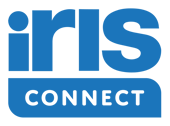How do we increase the expertise of all teachers?
This is the key question addressed by renowned education expert, John Hattie, in his new report: ‘What Works Best in Education: the Politics of Collaborative Expertise’.
Hattie's aim in this paper is to describe what a model of expertise would look like and what we need to do to make it a reality. Within it, he lays out a number of tasks to be undertaken to establish the conditions for collaborative expertise, which we've condensed here for you:
1. Shift the narrative to collaborative expertise and student progression
Hattie says, re-framing the conversation away from its current focus on standards and achievement and towards progress is the first step.
So is recognising that everyone, from teachers and school leaders to parents and policy makers, should be working together towards ensuring every child receives at least one year's worth of progress for one year's input.
2. Agree on what a year's progress looks like across all subjects, schools and system levels
What a year's progress looks like needs to be debated and agreed upon among educators.
This will reduce variability in teachers' understanding of challenge and progression for students and truly accelerate progress.
3. Expect a year's worth of progress by raising expectations that all students can achieve
Research proves that one of the greatest influences on learning is the expectations of students and teachers.
When teachers have high expectations of their students, those students tend to be very successful in achieving their goals.
4. Develop new assessment and evaluation tools to provide feedback to teachers
We need to find improved ways of helping students and teachers to better teaching and learning through assessment.
Evaluation tools shouldn't measure learning, they should help to shape it.
5. Know thy impact by taking responsibility for the impact of everyone in the school on the progress of students
"Schools need to become evaluators of impact and experts at interpreting the effects of teachers and teaching on all students."
Schools should create environments that enable excellent teaching and strong communication with a focus on making an impact, where teachers identify what success looks like and the magnitude of the impact before they start teaching.
6. Ensure teachers have expertise in diagnosis, interventions and evaluation through teachers working together as evaluators of their impact on their students
Teachers need to be experts at diagnosis, interventions and evaluation.
They need to understand what each student already knows and where they need to go next, as well as what interventions to use to get them there and then how to evaluate the impact they have made.
7. Stop ignoring what we know and scale up success by using the wealth of knowledge that exists in teacher communities
We have an enormous wealth of knowledge already about how to address certain challenges that students face.
Teachers should be encouraged to share and use the existing expertise that has been proven to work.
8. Link autonomy to a year's progress by studying teachers who are achieving a year of student progress and supporting teachers who aren't
The implications for teachers
The implications for teachers is that they will no longer work alone and in isolation. They will have a professional ethic that emphasises collaboration. Communities will form in and across schools that work together to diagnose what teachers need to do, plan interventions, and evaluate success, as well as share professional development that's proven to improve teacher effectiveness and expertise.
The implications for school leaders is that they must have the expertise to enable teachers to work collaboratively with confidence and security, and question their effectiveness. They need to create opportunities, develop trust, provide resources for understanding the impact and lead discussions.
John Hattie's final thought
"The aim is not aspiring to utopia but scaling up the success already about us. It is expertise, it is reliable judgement, it is passion for making the difference, and it is collaborative sharing of this knowledge and doing and caring. This requires the greatest investment, and the benefits for the students will be manifest, powerful and exciting."
Download Hattie's full report here.
What do you think about Hattie's 8 ways to build collaborative expertise? Is there anything you've found to work? Share in the comments below...



Leave a comment:
Get blog notifications
Keep up to date with our latest professional learning blogs.